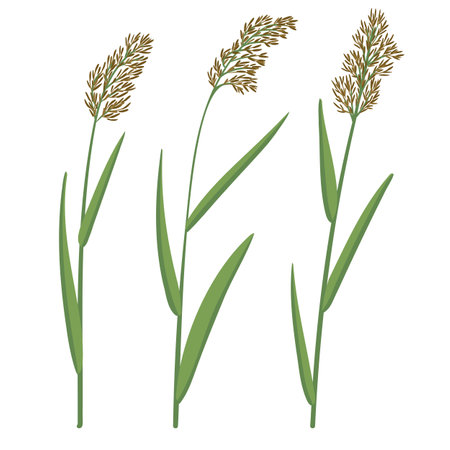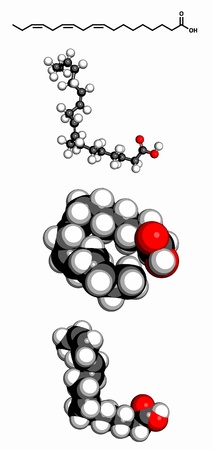1. Biotin (Vitamin B7)
Biotin is a well-known ingredient for promoting hair growth by supporting keratin production and strengthening hair strands. As a water-soluble B vitamin, biotin plays a crucial role in converting nutrients into energy, which helps maintain healthy hair, skin, and nails.
How Biotin Supports Hair Growth
- Boosts Keratin Production: Keratin is a key structural protein in hair. Biotin helps the body produce more keratin, leading to stronger and healthier strands.
- Reduces Hair Thinning: A deficiency in biotin can result in brittle hair and increased shedding. Supplementing with biotin may help improve hair thickness.
- Enhances Scalp Health: Healthy hair starts with a nourished scalp. Biotin supports overall scalp health, reducing dryness and irritation.
Recommended Daily Intake
| Age Group | Recommended Daily Intake (mcg) |
|---|---|
| Adults (19+ years) | 30 mcg |
| Pregnant Women | 30 mcg |
| Breastfeeding Women | 35 mcg |
Natural Sources of Biotin
While supplements are a great way to boost biotin levels, you can also get this essential vitamin from natural food sources:
- Egg Yolks: One of the richest sources of biotin.
- Nuts and Seeds: Almonds, walnuts, and sunflower seeds contain high levels of biotin.
- Sweet Potatoes: A great plant-based source packed with vitamins.
- Salmon: Provides both biotin and omega-3 fatty acids for healthy hair growth.
- Avocados: Rich in biotin and healthy fats that nourish hair follicles.
Should You Take a Biotin Supplement?
If youre experiencing hair thinning or slow growth, adding a biotin supplement to your routine may be beneficial. However, its always best to consult with a healthcare professional before starting any new supplement regimen to ensure its right for you.
Potential Side Effects
Biotin is generally safe when taken within recommended limits. However, excessive intake may lead to mild side effects such as skin rashes or digestive issues. Stick to the recommended dosage for optimal results.
Key Takeaway
Biotin is an essential nutrient for strong, healthy hair. Whether through diet or supplements, ensuring adequate biotin intake can support hair growth and overall scalp health.
2. Collagen and Amino Acids
Collagen and amino acids play a crucial role in hair growth by providing the building blocks needed for strong, healthy strands. Since hair is primarily made of keratin, which is a protein, ensuring your body has enough essential amino acids can make a noticeable difference in hair strength and resilience.
How Collagen Supports Hair Growth
Collagen provides essential amino acids that help improve hair structure, elasticity, and overall strength. As we age, collagen production naturally declines, which can lead to weaker hair and increased breakage. Supplementing with collagen can help replenish these important proteins, supporting healthier and more resilient hair.
Amino Acids: The Building Blocks of Hair
Amino acids are vital for producing keratin, the protein that makes up most of our hair. Some key amino acids that contribute to stronger and healthier hair include:
| Amino Acid | Benefit for Hair Growth |
|---|---|
| Cysteine | Enhances hair strength and protects against damage |
| Lysine | Aids in iron absorption, which supports hair follicle health |
| Proline | Helps form collagen and improves hair elasticity |
| Methionine | Acts as an antioxidant and supports hair structure |
| Glycine | Aids in collagen production for stronger strands |
The Best Sources of Collagen and Amino Acids
If you’re looking to boost your intake of collagen and amino acids naturally, consider incorporating these foods into your diet:
- Bone Broth: A rich source of collagen that helps support overall hair health.
- Eggs: Packed with amino acids like cysteine and lysine that contribute to stronger strands.
- Fish: Contains high levels of proline and glycine, essential for collagen production.
- Nuts and Seeds: Provide methionine and other nutrients that promote hair growth.
- Dairy Products: Offer lysine, which helps support keratin formation.
Should You Take Collagen Supplements?
If getting enough collagen through diet alone is challenging, supplements can be a convenient option. Many hair growth supplements contain hydrolyzed collagen peptides, making it easier for the body to absorb and use these essential proteins.

3. Saw Palmetto
This natural extract is believed to help block DHT, a hormone associated with hair loss, making it a key ingredient in many hair growth supplements. DHT (dihydrotestosterone) is known to shrink hair follicles, leading to thinning hair and, eventually, hair loss. By reducing DHT levels, saw palmetto may help support healthier hair growth.
How Saw Palmetto Works for Hair Growth
Saw palmetto is thought to work by inhibiting the enzyme 5-alpha reductase, which converts testosterone into DHT. Lowering DHT levels can help protect hair follicles from shrinking and extend the hair growth cycle.
Potential Benefits of Saw Palmetto
| Benefit | Description |
|---|---|
| DHT Blocking | May reduce the effects of DHT on hair follicles, helping to prevent hair thinning. |
| Supports Hair Density | Might contribute to thicker, fuller-looking hair over time. |
| Nourishes Scalp | Has potential anti-inflammatory properties that could promote a healthier scalp environment. |
How to Use Saw Palmetto in Your Routine
Saw palmetto is commonly available in supplement form as capsules or tablets. Some shampoos and topical treatments also include saw palmetto extract for direct application to the scalp. For best results, it’s recommended to use it consistently as part of your daily routine.
4. Vitamin D and Iron
When it comes to hair growth, Vitamin D and iron play essential roles in maintaining strong and healthy follicles. Deficiencies in these nutrients have been linked to hair thinning, so their presence in supplements can support healthy hair follicles.
How Vitamin D Supports Hair Growth
Vitamin D is known for its role in bone health, but it also contributes to hair growth by stimulating hair follicles. A lack of Vitamin D can lead to weak or dormant follicles, which may result in excessive shedding or slow hair regrowth.
Sources of Vitamin D
While sunlight exposure is the most natural way to get Vitamin D, many people don’t get enough due to indoor lifestyles or seasonal changes. That’s why supplements containing this nutrient can help fill the gap.
Common Sources of Vitamin D
| Source | Description |
|---|---|
| Sunlight | The body naturally produces Vitamin D when exposed to sunlight. |
| Fatty Fish | Salmon, mackerel, and tuna are rich sources of Vitamin D. |
| Dairy Products | Milk and yogurt are often fortified with Vitamin D. |
| Supplements | A convenient way to ensure adequate intake, especially for those with limited sun exposure. |
The Role of Iron in Hair Health
Iron helps red blood cells carry oxygen to the scalp and hair follicles. Without enough iron, follicles may not receive the nutrients they need, leading to hair thinning and increased shedding.
Iron Deficiency and Hair Loss
A common cause of hair loss, particularly in women, is iron deficiency anemia. If you experience unexplained hair thinning, checking your iron levels may be a good idea.
Best Dietary Sources of Iron
| Source | Description |
|---|---|
| Red Meat | A highly bioavailable source of iron that helps maintain optimal levels. |
| Leafy Greens | Spinach and kale provide plant-based iron along with other essential nutrients. |
| Lentils & Beans | A great vegetarian option packed with iron and protein. |
| Iron Supplements | An easy way to boost iron intake if dietary sources are insufficient. |
5. Zinc and Antioxidants
When it comes to hair growth, zinc and antioxidants play a crucial role in maintaining healthy hair follicles and protecting against damage. These ingredients work together to support hair strength, repair tissues, and prevent oxidative stress that can lead to hair thinning.
Why Zinc is Essential for Hair Growth
Zinc is a vital mineral that contributes to various bodily functions, including cell growth and tissue repair. When it comes to hair health, zinc helps regulate oil glands around the follicles, ensuring they function properly. A deficiency in zinc has been linked to hair loss, making it an important ingredient in any effective hair growth supplement.
Benefits of Zinc for Hair Health
| Benefit | Description |
|---|---|
| Tissue Repair | Zinc aids in repairing damaged hair follicles, allowing for healthier regrowth. |
| Oil Gland Regulation | Keeps the scalp balanced by regulating sebum production. |
| DHT Reduction | Zinc may help reduce levels of DHT, a hormone linked to hair thinning. |
The Role of Antioxidants in Hair Protection
Antioxidants like vitamin E are essential for protecting the scalp and hair from oxidative stress caused by environmental factors such as pollution and UV exposure. Free radicals can weaken hair strands over time, leading to breakage and dullness. By incorporating antioxidants into your routine, you help shield your hair from these harmful effects.
Main Antioxidants for Hair Growth
- Vitamin E: Promotes scalp circulation and protects hair from oxidative damage.
- Vitamin C: Helps with collagen production, which strengthens hair structure.
- Selenium: Works with enzymes to combat free radicals that may harm hair follicles.
- Beta-Carotene: Converts into vitamin A, supporting scalp health and preventing dryness.
Zinc and Antioxidants: A Powerful Combination
Together, zinc and antioxidants create a strong foundation for healthy hair growth. While zinc ensures proper follicle function and tissue repair, antioxidants protect against damage that could slow down growth. If youre looking for an effective supplement, make sure it includes both these key ingredients to maximize results.


